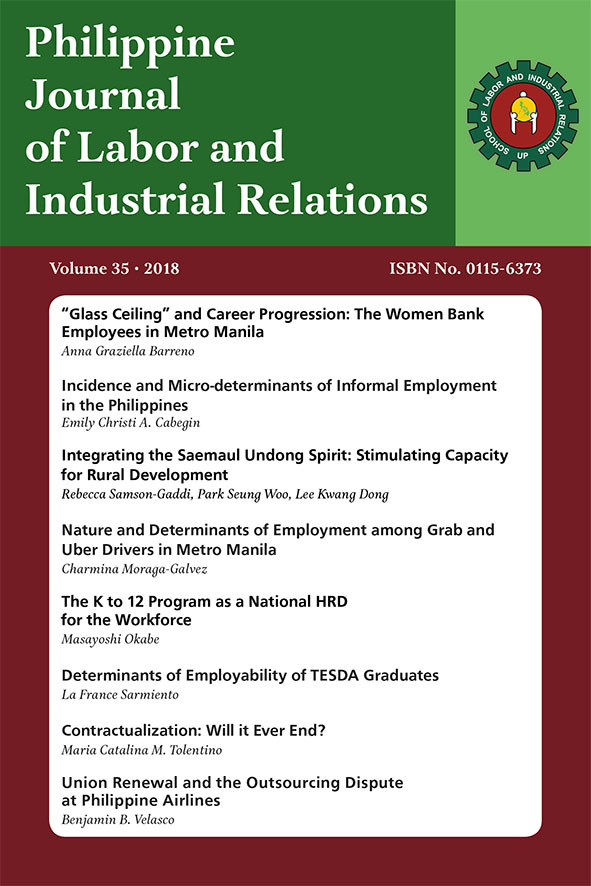Nature and Determinants of Employment among Grab and Uber Drivers in Metro Manila
Abstract
Using identified indicators of decent work, the study explores the extent of formality and informality in the work arrangement and conditions of Grab and Uber drivers in Metro Manila. The study’s initial assumption was that work conditions of Grab and Uber drivers were characterized by both formality and informality. The study likewise identified the key reasons why people engage in work arrangements in the so-called ‘gig economy’ which is enabled by digital platforms such as Grab and Uber. In general, majority of the drivers engaged in this activity mainly as a personal choice. Primary data was gathered using two sets of interviews developed and administered by the researcher among three categories of drivers: purely driver, driver and operator and part-time driver/operator. Key informant interviews were also conducted on officials from the Land Transportation Franchising and Regulatory Board (LTFRB), Bureau of Working Conditions (BWC) and Philippine Transport Network Organization (PTNO).
The research reveals that while formality and informality intersect in the work arrangements of Grab and Uber drivers, informality dominates the nature of employment and work conditions. The drivers, purportedly classified as ‘independent contractors,’ are in fact engaged in non-standard precarious employment: they are not covered by social security, they work beyond normal working hours and they are not assured of a fixed and stable income, among others. Moreover, applying the four-fold test, the study concludes there is an employer-employee relationship between Grab and Uber and the drivers. These findings support the existence of a continuum of formality and informality of employment arrangements and relations even in the ‘gig economy’.


